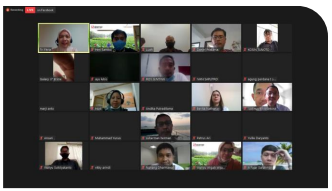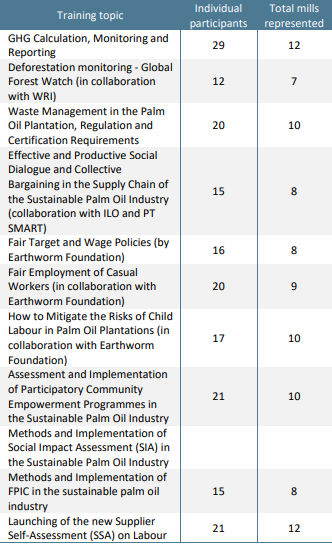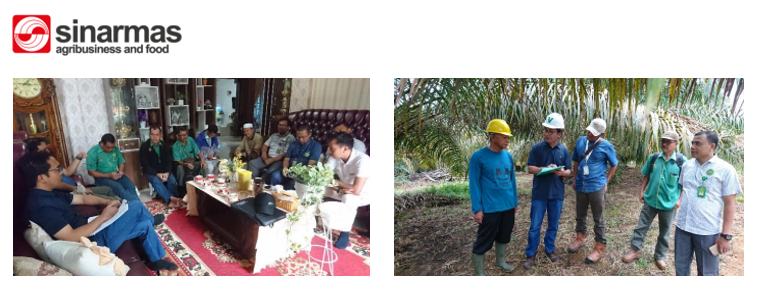How GAR develops the capacity of its suppliers in Siak and Pelalawan to improve sustainability in the region’s palm oil development: Story from the Field
The importance of supplier engagement
Golden Agri Resources (GAR) is a supporter of the Siak Pelalawan Landscape Programme (SPLP) in Indonesia, and is able to use its engagement with suppliers in the landscape to cascade its global NDPE commitments through a series of assessments, training and coaching programmes. This involves a first period of intensive engagement with the top management of each of the supplying companies to explain the needs and benefits, and GAR has been doing this in Indonesia since 2015. In this story GAR outlines its process of supplier engagement, and how it has had to practice adaptive management to continue its work remotely throughout the global Covid-19 pandemic.
Step 1: Supplier Assessment
Supplier assessment is the first step towards a transparent and responsible purchasing process. It determines the level of compliance with GAR’s Social & Environmental Policy (GSEP) and aims to understand the existing gaps and the support needed. Supplier assessments are usually done
through field visits until the government imposed a travel restriction in early 2020 due to the Covid-19 pandemic. Since then, the assessment has been carried out online through the SMART REACH (Remote Engagement, Assessment and Conference Call from Home) programme.
All suppliers receive a set of self-assessments from GAR, a checklist of sorts to go through in their operations. Then the GAR team meets suppliers via teleconference to go through each item. They will have to provide answers and evidence for each portion of the assessment. During the assessment, GAR educates all supplier personnel involved about the GSEP. In addition, GAR conducts deforestation monitoring demonstrations for suppliers and encourages them to adopt a system to ensure their supply chain is free from deforestation. Finally, GAR asks suppliers to provide updated data on Traceability to Plantation.
So far, based on the 2021 supplier data, approximately 91% of GAR suppliers in Siak district and 78% of GAR’s suppliers in Pelalawan district have been assessed, either by field visits or online. 90% of GAR suppliers in both districts have completed a supplier self-assessment. GAR followed up with action plans and monitoring. The direct benefit suppliers can get from this assessment is the opportunity to get further support to improve their sustainability practices.
Step 2: Training and coaching
After the assessments, supplier companies can receive training and coaching. GAR has been conducting intensive workshops for suppliers in Pelalawan and Siak districts since 2018 by holding face-to-face training, organising meetings with suppliers, monitoring activities that suppliers are
conducting in the field, and consulting with suppliers on making improvements.

During the pandemic, GAR has continued its support programme for suppliers through a series of webinars. In collaboration with various stakeholders, seminars, workshops and training programmes were organised for GAR suppliers from Siak and Pelalawan districts and
succeeded in delivering the following remote trainings in the period 15 April 2020-25 August 2021:

GAR also supported the Earthworm Foundation in developing guidelines, piloting a programme, and
conducting the socialization of Guidance and Workload Incentives and anti-Child Labour to GAR suppliers.
Step 3: GAR’s Collaboration for Transformation Programme
The third engagement approach is GAR’s Collaboration for Transformation programme: a participative method for coaching in the field alongside intensive discussion. GAR conducts a field visit to each selected supplier to coach the company to implement Traceability to Plantation.
The Collaboration for Transformation programme aims to achieve:
- Supplier companies produce traceability policies and procedures related to traceability
- Supplier companies appoint staff responsible for traceability who are able to implement a traceability system
- Supplier companies are now able to prepare a Traceability Declaration Document and send it to GAR.
Since the project started in 2017 until the end of 2021, GAR has conducted field visits to 10 mills, and there are currently 3 mills participating in the collaboration for transformation program. At the end of 2021, there were 17 mills developing traceability policies.
We have only recently resumed field coaching visits to suppliers following the pandemic: our adaptive management has been very successful using online methods for engaging and training suppliers, but we have found no real substitute for collaboration in person and building relationships with our suppliers through field visits and on-site training programmes.
We are looking forward to continuing this in-person part of our collaborative supplier engagement over the coming months, alongside many other activities as part of our support of the Siak-Pelalawan Landscape Programme.

the Collaboration for Transformation programme
Photo Credits: GAR
This impact story was originally published here.
